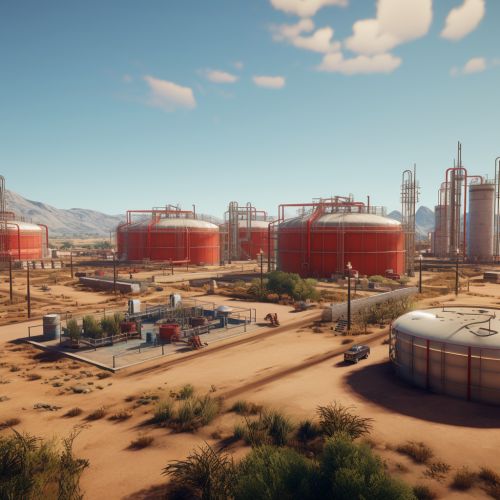Shell Oil Company
History
Shell Oil Company is the United States-based subsidiary of Royal Dutch Shell plc, a multinational oil company. The company was established in the U.S. in 1912 by the Royal Dutch/Shell Group to take advantage of the U.S.'s burgeoning oil production and consumption.


The company's early years were marked by the discovery of oil in Texas and the development of refineries and a distribution network in the U.S. During the 1920s and 1930s, Shell Oil expanded its operations to include exploration and production in other parts of the world, including Venezuela and Indonesia.
In the post-World War II era, Shell Oil was involved in the development of the oil industry in the Middle East, particularly in Saudi Arabia and Iran. The company also expanded its operations in the U.S., including offshore drilling in the Gulf of Mexico.
In the late 20th and early 21st centuries, Shell Oil has faced a number of challenges, including environmental controversies, changes in the global oil market, and the transition to renewable energy sources. Despite these challenges, the company remains one of the largest oil companies in the world.
Operations
Shell Oil's operations are divided into three main areas: upstream, downstream, and projects and technology.
In the upstream sector, Shell Oil is involved in the exploration for and extraction of crude oil, natural gas, and natural gas liquids. The company's upstream operations are located in the U.S., the Gulf of Mexico, and other parts of the world.
In the downstream sector, Shell Oil refines crude oil and other feedstocks into a variety of products, including gasoline, diesel, jet fuel, and petrochemicals. The company also markets and sells these products in the U.S. and other countries.
In the projects and technology sector, Shell Oil is involved in the development of new technologies and the implementation of major projects. This includes the development of new oil and gas fields, the construction of new refineries and petrochemical plants, and the research and development of new technologies for the exploration, production, and refining of oil and gas.


Environmental Impact and Controversies
Shell Oil has been involved in a number of environmental controversies and legal cases related to its operations. These include oil spills, air and water pollution, and the impact of its operations on local communities and ecosystems.
In the 1980s and 1990s, Shell Oil was involved in a series of oil spills in the U.S. and other countries. These spills resulted in significant environmental damage and led to legal cases and fines against the company.
In recent years, Shell Oil has faced criticism and legal challenges related to its plans to drill for oil in the Arctic. Critics argue that the company's plans pose a risk to the Arctic's fragile ecosystem and could contribute to climate change.
Despite these controversies, Shell Oil has taken steps to address its environmental impact. The company has invested in renewable energy sources, including wind and solar power, and has implemented measures to reduce its greenhouse gas emissions.
